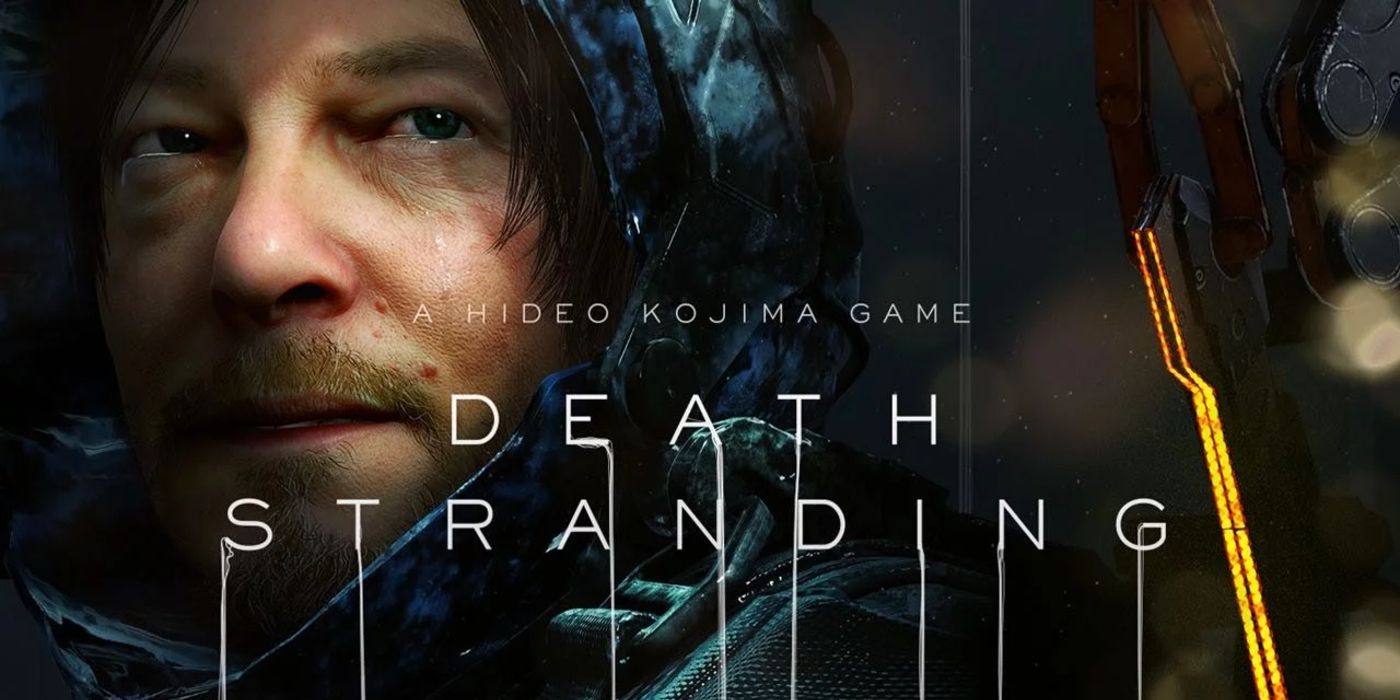
Evaluating Death Stranding was always going to be difficult. It's a game that has been built up for so many years, and by so many fans of a director with ambitious vision, freed from the shackles of a company that many believe restricted his creativity. It has celebrities scattered throughout its cast, an incredible ensemble soundtrack that's being released as an album, and so much extraneous activity that it feels like a game that's been out for a year and a half already. Superseding that, however, is the belief, partly stirred up by Hideo Kojima himself, that Death Stranding will change gaming.
Whether or not Death Stranding has effected the sort of change consumers expected it would is entirely subjective, but after playing through the game in its entirety, it feels impossible to come away with anything but the lingering sense that something in gaming's paradigm is shifting. It is by no means a perfect game, but Death Stranding is an important one. In fact, Death Stranding is one of the most important video games released this decade. It’s a must-play that manages to leave a lasting impression, in spite of - or perhaps due to - its stumbles.
The story of Death Stranding is not ideally experienced while distracted. There's a lot going on, and most of it doesn't get unpacked for the player until the game is approaching its climax. Players take on the role of Sam Porter Bridges (Norman Reedus), a deliveryman who treks across a hellish, ghost-infested post-apocalyptic landscape to bring packages to the few remaining humans that have found shelter across the country. America has been shattered, the rest of the world presumably in a similar state of disarray, and humanity is barely clinging to its last vestiges of life.
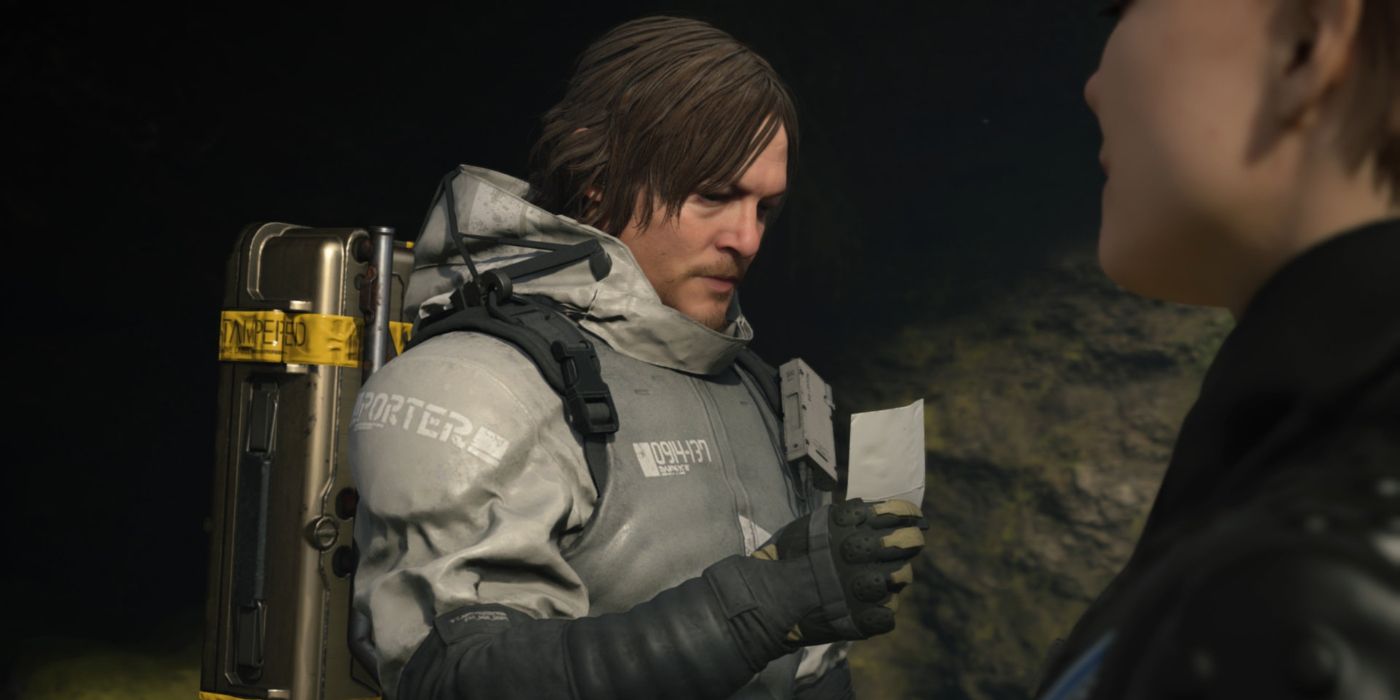
That's about as contained as the story ever gets. Things begin to unravel quickly, with the realization that the technology used by humans to combat supernatural forces - BTs, or Beached Things - involves half-dead, half-living babies called BBs that can detect their presence. From there, things get decidedly weirder, somehow: there are multiple dimensions, a new spin on the acid rain convention, and characters intimately connected to death.
Along the way, other characters make connections with Sam, from the sublimely-portrayed Deadman (Guillermo del Toro) to the mysterious Fragile (Léa Seydoux). It's a superstar cast and it shows before other juggernauts like Mads Mikkelsen even turn up. Nearly every major character in Death Stranding resonates and settles the complex, sometimes ridiculous narrative into something that still evokes emotional responses at each turn. For a game that only gets more complicated the longer its tale gets, that's an impressive feat.
Connection is at the heart of the story of Death Stranding, and it is the channel through which all other elements of the game travel as well. Much of the game is about bringing together a society that is divided, whether that's on a grand scale - an entire country - or a smaller one, like families or lovers. To that end, players will often find themselves completing tasks that seem menial with the threat of extinction hanging over humanity's head: transporting keepsakes or, in some cases, pizza, in order to bring a bit of happiness to the bleak grays of humankind's death rattles.
This gameplay shakes out into two distinct patterns, the first of which is delivery and human connection. The travel to deliver items is never easy. Players will have to navigate rough terrain, not to mention enemies - supernatural and not - hellbent on killing Sam. Sam can't die, though. He's a repatriate, which means he can emerge from the world of the dead and back into the realm of the living by following "strands" that lead him back. Just because he can't die doesn't mean there aren't tangible consequences, though, and the game does an excellent job of making every misstep feel important. Craters are left in the wake of failed attempts, and the world can begin to feel very grim indeed as the landscape gets torn apart with every major mistake.
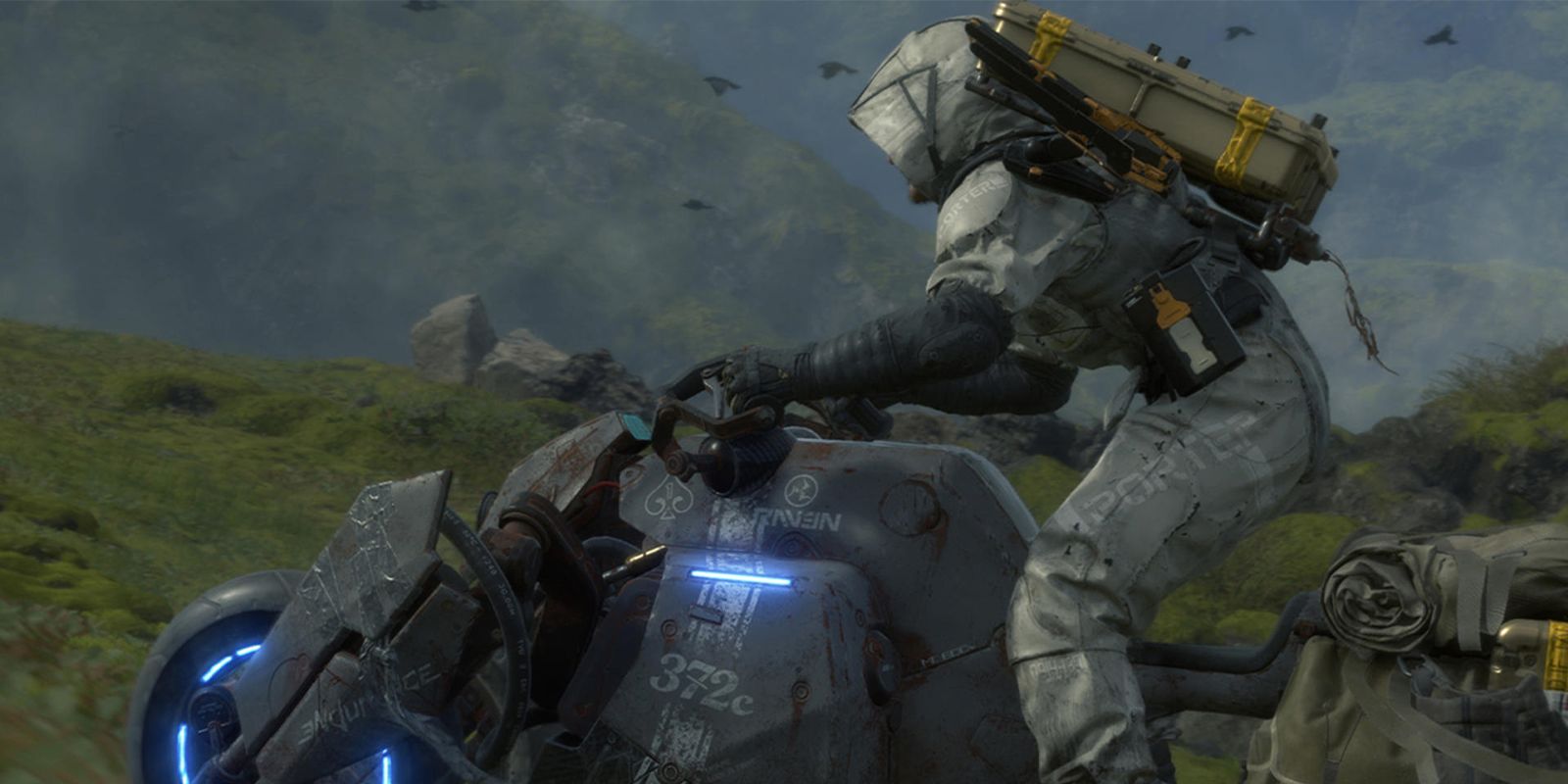
During the journey, players will also be able to connect online to see what others have done to the landscape before them, making their journeys easier. Players can build structures across the map that help them and carry over to other players' maps, too. For instance, building a bridge to cross a particularly strong river will let other players cross that same area when they get to it. Players can also "like" other structures or vehicles that have been left behind, building a sense of connection. It seems simple, but those likes feel good - something that the game even builds into its lore - and while playing, some usernames will make repeat appearances, making it seem as though a friendship has been forged.
And maybe it has. During our playthrough, it felt very much like Death Stranding was a multiplayer game despite the fact that players can't team up in real-time. One of the early elements that can feel frustrating in Death Stranding is how often the game tasks Sam with backtracking from one hard to reach settlement to another. That serves a purpose, though. As the game’s plot unfurls and players begin to better understand the world, they can also grow to appreciate how the journey changes even though it ostensibly takes place in the same area. Sometimes, new structures are there that make travel easier, all thanks to the work of others. There's a tangible sense of progress, as if humanity really is rebuilding in some way, and players are all connected in that effort. The community's triumph is Sam's triumph. It's an intoxicating feeling.
Of course, the game is more challenging and involved than just that rebuilding effort. The world itself is trying to stop players from dragging America out of the depths of hell. The rain erodes player gear and is fatal to those who are exposed to it for too long. There are mountains, rivers, and steep terrain that must be traversed slowly, painfully, laboriously - and it's all time-consuming. Nothing comes easy. Nor should it - Death Stranding imagines a world being built-up from something close to zero. It's ingrained in every mechanic, too. Players will have to make sure their boots are constantly replaced, as they'll slowly fall apart. Gear will have to be built and rebuilt with each successful delivery. Large packages will make Sam's gait unsteady, his movements more difficult, and that will drain his stamina. These are all elements that will feel overwhelming, or unfair, or even just unfun. But with a little time, the game's rhythm is established, and these previously frustrating elements combine into something memorable.
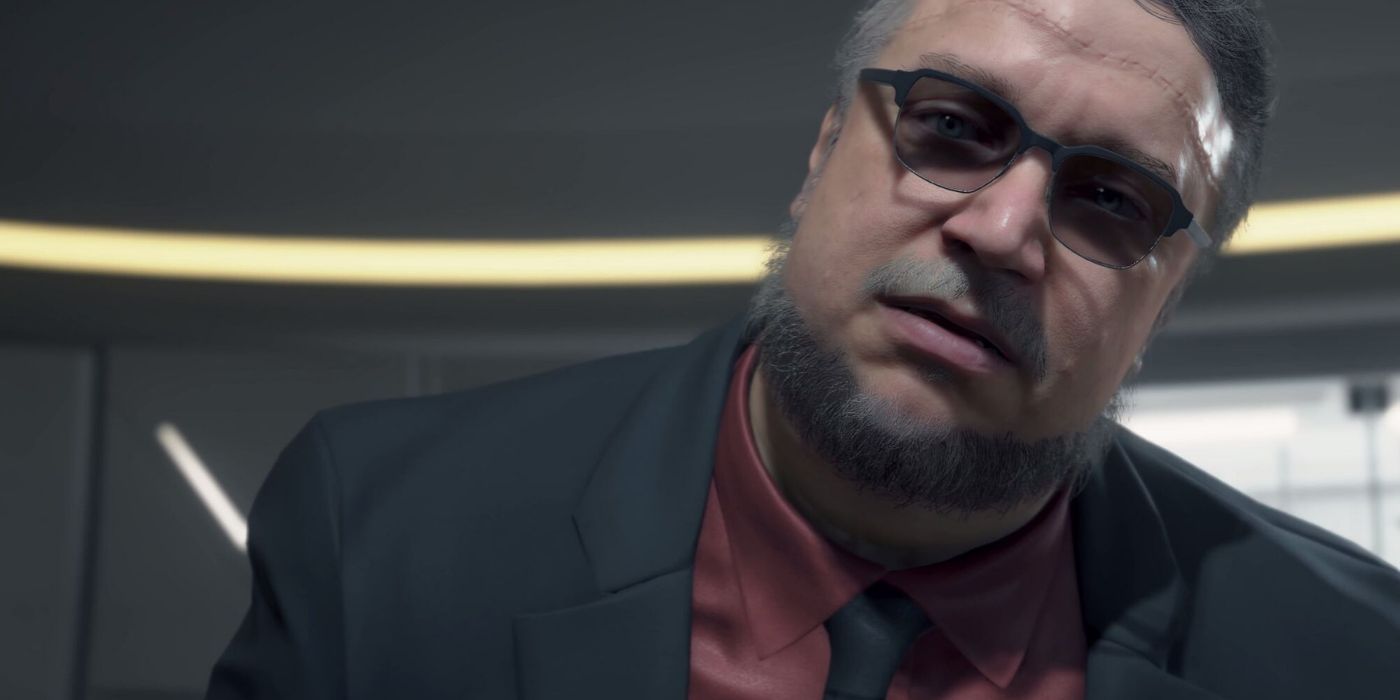
Then come the BTs. Several areas of the game are terrorized by these nearly-invisible otherworldly entities, made from the dead of our world. Early on, they will be almost infallible. Players will be able to detect them by proximity, and hold their breath to try to throw them off their location, and...that's it. The BTs are horrors, here to remind Sam at regular intervals that no matter how optimistic things can get, no matter how high they're riding off the “likes” of their scattershot community, the world is still doomed. The first several encounters with BTs are among some of the most tense, memorable moments in recent gaming history.
Eventually, Death Stranding begins to offer players other methods of dealing BTs as Bridges, the organization Sam works for, uncovers the mysteries of their existence. As that happens, BT segments evolve from pure horror-inspired events into a mixture of stealth, horror, and strategic action. In both instances, Death Stranding just works. It's another journey, one that goes from ignorance and fear of the unknown to understanding - like humans discovering fire.
It's difficult to convey how effective Death Stranding is at delivering its messages without diving too deeply into spoilers. However, the journey, for all its frustrations - the slow, plodding pace of the early game and the obtuse beginnings of its story - still serves as a worthy foundation for the excellent experience that follows. Death Stranding probably isn't a game for everyone. There will be some who are turned off by how long it takes Death Stranding to really get going and that’s fine. It's not a game that's trying to appeal to every key consumer demographic.
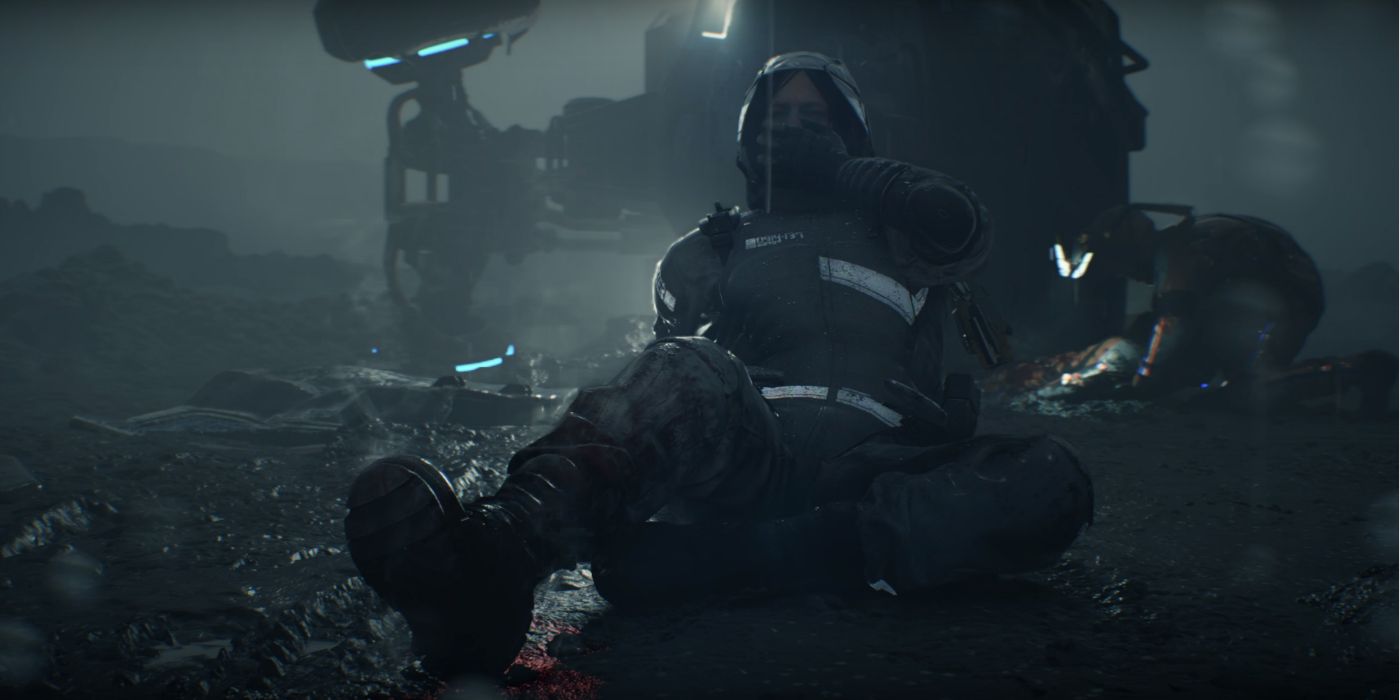
What Death Stranding is, though, is a game that pushes the medium forward. So much of Death Stranding is memorable, from its characters to its gameplay sections to its stellar soundtrack. It genre-hops in the same way that NieR: Automata did so successfully a few years ago. While navigating between stealth, adventure, survival, and gunfighting elements, Kojima’s latest title balances them all into something that feels new. The game is incredibly ambitious, and it is unapologetic about the design elements it feels are integral to telling its story.
Hideo Kojima promised the world that he'd be delivering a new genre, and his friends and those who had tried the game in its infancy dared to dream that Death Stranding could be revolutionary. It's not the best game ever made, but it's one of the best experiences in modern gaming. Death Stranding delivered on its impossible promise in a breathtaking way, and it's a must-play for everyone who has ever held a game controller and wondered about what comes next.
Death Stranding will be available on November 8, 2019 for PlayStation 4 and in summer 2020 for PC. Screen Rant was provided a PS4 code for the purposes of this review.
from ScreenRant - Feed https://ift.tt/2r3ak1t

0 comments:
Post a Comment